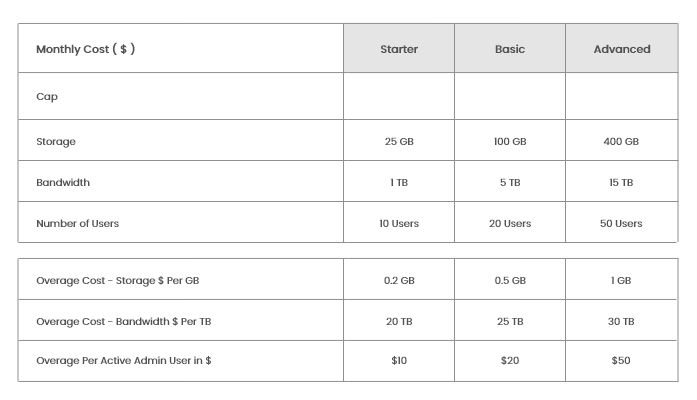



My Life, My Job, My Career: How 5 Simple Reporter Management Systems Helped Me Succeed
Continuous learning and professional growth are essential for success as a reporter...
Managing a successful career as a reporter in today's fast-paced environment can be difficult. Yet, by developing excellent reporting management methods, I was able to overcome the difficulties and attain professional achievement. In this blog article, I'll talk about five basic reporter management techniques that have changed my life, job, and career. These strategies have helped me stay organized, increase my productivity, strike a healthy work-life balance, and ultimately thrive as a writer.
Prioritization and Time Management
Prioritization and time management are important aspects of reporter management. As a journalist, I'm always juggling various tasks, deadlines, and obligations. To keep track of my workload, I use a system that prioritizes jobs depending on their urgency and significance.
I start each day by making a to-do list of the things that need to be performed. I divide them into three categories: "urgent," "important but not urgent," and "non-urgent." This method helps me to properly spend my time and energy, ensuring that the most important tasks are completed first.
In addition, I employ time management strategies such as the Pomodoro Technique, in which I work in 25-minute spurts separated by brief breaks. This strategy enables me to sustain productivity while avoiding burnout, resulting in more efficient reporting and higher-quality work.
Effective Communication and Collaboration
Effective communication and teamwork are crucial abilities for a reporter. I've put in place a structure to ensure clear and straightforward communication with my coworkers, editors, and sources. This entails paying close attention, asking pertinent questions, and providing regular updates on the status of my projects.
Furthermore, I employ digital tools and platforms to facilitate smooth cooperation. Project management tools such as Trello and Asana help me keep track of assignments and deadlines, while communication platforms such as Slack and Microsoft Teams allow for rapid and effective information sharing with my team members.
I have developed solid professional connections and gotten useful insights from my colleagues by promoting a culture of open communication and cooperation. Not only has this improved the quality of my reporting, but it has also broadened my professional network.
Research and Information Management
It is critical for a reporter to keep educated and undertake comprehensive research. I have created an effective research and information management system to manage the large quantity of information I encounter on a daily basis.
To preserve and organize significant articles, research papers, and sources, I use digital tools and bookmarking sites like Evernote or Pocket. These technologies enable me to swiftly access information, even while I'm on the run.
In addition, I set aside time each day for in-depth study and fact-checking. This set-aside period allows me to collect correct and dependable information for my reporting. I can give detailed and well-informed news to my readers by being organized and up to speed with the newest events in my beat.
Self-Care and Work-Life Balance
A good work-life balance is essential for long-term success as a reporter. I emphasize self-care inside my reporter management system to minimize burnout and stay motivated.
I schedule time for physical activity, hobbies, and leisure. Daily exercise allows me to cleanse my head and raises my energy levels. Outside-of-work activities give a much-needed respite and renewal.
Setting boundaries between work and personal life is also vital. To keep business and home life distinct, I set up a discrete workplace and set working hours. This helps me stay focused and keeps work from invading my personal time.
I've discovered that by prioritizing self-care and keeping a healthy work-life balance, I'm more productive, creative, and resilient.
Continuous Learning and Professional Development
Continuous learning and professional growth are essential for success as a reporter. My reporter management strategy includes a concept of lifelong learning.
I attend workshops, conferences, and webinars on a monthly basis to remain current on industry trends, technical breakthroughs, and storytelling strategies. In addition, I always seek input from my editors and colleagues in order to enhance my reporting abilities.
In addition, I emphasize reading books, articles, and opinion pieces by other well-known journalists. I acquire great insights into other reporting styles and narrative strategies by analyzing their work, which improves the quality and diversity of my own reporting.
Conclusion
It has been revolutionary to include effective reporter management strategies into my life and profession. I've been able to succeed as a reporter by properly prioritizing and managing my time, communicating and collaborating efficiently, organizing research and information, prioritizing self-care, and pursuing continual growth.
These basic but effective techniques have helped me achieve success, maintain a good work-life balance, and continue to grow as a professional. You, too, can handle the hurdles of the reporting sector and develop a meaningful and fulfilling career by applying these techniques.
Hocalwire is a CMS and automation platform that allows newsrooms and publishers to create content in real-time. It distinguishes itself as an all-in-one solution that allows reporters and journalists to concentrate on writing while the CMS handles all of the tedious labour involved in the publication process. There are numerous integrations for optimization, analytics, SEO, and editing on the platform. Hocalwire CMS enables its customers to reach 100% more people, get 200% more SEO traffic, and load pages 400% faster while saving 30% on publication costs. The technique propels the story to the top of Google search results and Google stories, resulting in increased traffic and revenue. Book a demo today to see how Hocalwire CMS can transform your newsroom.

